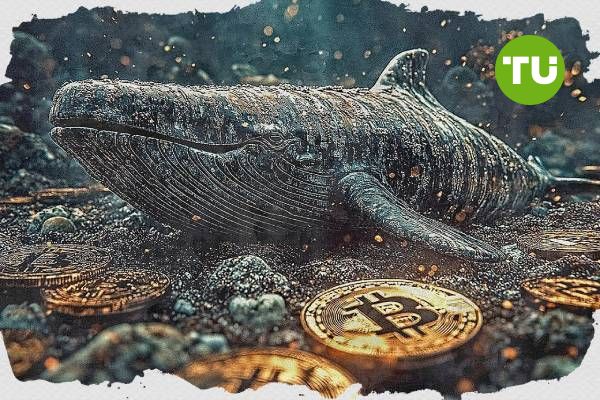80,000 BTC transfer: Awakening of legend or biggest crypto heist in history?
 A triumphant return — or the largest crypto robbery ever?
A triumphant return — or the largest crypto robbery ever?
At the beginning of July, the crypto community held its breath: one by one, dormant Bitcoin wallets suddenly came to life — after more than 14 years of silence. Together, they transferred over 80,000 BTC, worth roughly $8.6 billion at current prices. These wallets had first received their coins back in 2011, when Bitcoin was trading below $1.
A major Bitcoin transaction in 2025
At first, the market cheered: a legendary HODLer was finally cashing out. Perhaps one of Bitcoin’s early believers — someone who got in before the Mt. Gox collapse — had decided to pass on their coins as an inheritance or move them to a more secure storage. After all, there’s nothing inherently suspicious about the transaction itself.
But as more details surfaced, doubts began to grow: could this dramatic awakening of $8 billion in BTC be the result of a hack or compromised private keys?
Testing the key on BCH
First, the coins were moved in batches of 10,000 BTC — without any accompanying messages or public signals from the wallet owner. Second, these transfers occurred immediately after a «test» transaction was made on the Bitcoin Cash (BCH) network — a separate cryptocurrency that can be accessed using the same private keys. This specific detail is what triggered alarm among many analysts.
Connor Grogan, head of product at Coinbase, pointed out that this test transaction resembled a trial run with compromised keys:
«There’s a small possibility this was a hack. If true, this could be the largest crypto heist in human history,» he wrote.
Grogan explained that if an attacker first verified access through the BCH network and then moved the main BTC stash, it would be a logical way to avoid detection — since BCH activity is not as closely monitored by on-chain analytics firms as Bitcoin itself.
Another analytics firm, Arkham, confirmed that the BTC transfers originated from wallets that had remained untouched since spring 2011. The coins are now sitting in eight new wallets. So far, they have not been moved again or sent to exchanges — but that hasn’t reassured analysts.
Loading...
An alternative theory is that the real wallet owner panicked after sending BCH and realized that their keys might have been exposed. In response, they rushed to move their BTC to new wallets. However, as Grogan noted, it’s puzzling that the other BCH wallets were left untouched. If the concern was truly about security, one would expect the owner to sweep all assets — not just the Bitcoin. That’s why the hack hypothesis remains very much on the table.
Loading...
The legend returns… or maybe not?
If the hack theory proves true, this would go down as the largest crypto theft in history. More than $3 billion worth of Bitcoin — untouched since the days when Satoshi still replied to emails — isn’t just a fortune. It’s a relic, a part of crypto lore, and potentially, proof that even the oldest titans of the blockchain aren’t immune to compromise.
There’s no official confirmation of a breach. But the context, the suspicious behavior, and the silence from the presumed owner (or their absence?) leave only one thing: speculation.
The irony? This all happened just as Bitcoin was trying to hold the $109,000 level. The awakening of whale-era funds only added to market tension: if it was the real owner, why the silence? If it was an attacker — what else might they control? And in either case — what does this say about trust in Bitcoin as a long-term store of value?
We don’t have a clear answer. But we’re reminded of one thing: even 14 years on, every private key is more than a pathway to wealth — it’s a responsibility that must never be lost.













































































































































